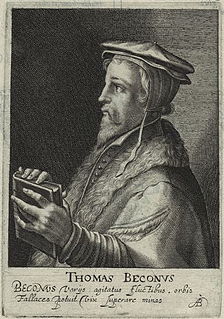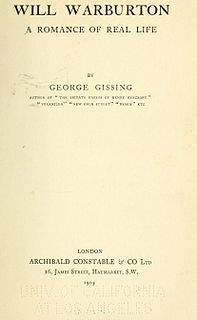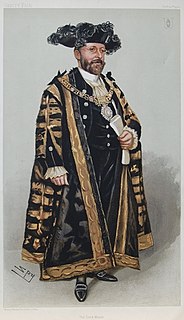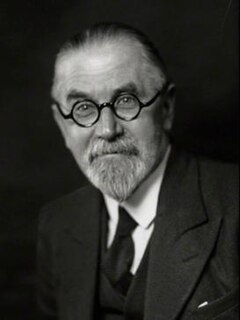Related Research Articles

Project Gutenberg (PG) is a volunteer effort to digitize and archive cultural works, as well as to "encourage the creation and distribution of eBooks." It was founded in 1971 by American writer Michael S. Hart and is the oldest digital library. Most of the items in its collection are the full texts of books or individual stories in the public domain. All files can be accessed for free under an open format layout, available on almost any computer. As of 22 May 2021, Project Gutenberg had reached 65,405 items in its collection of free eBooks.
Booths is a chain of high-end supermarkets in Northern England. Most of its branches are in Lancashire, but there are also branches in Cheshire, Cumbria, Greater Manchester, North Yorkshire and West Yorkshire. It has been described as the "Waitrose of the North" by sources such as The Daily Telegraph. Booths has competed on quality as opposed to just price and has been developed on the motto "to sell the best quality goods in shops staffed by first class assistants".
John Heminges was an actor in the King's Men, the playing company for which William Shakespeare wrote. Along with Henry Condell, he was an editor of the First Folio, the collected plays of Shakespeare, published in 1623. He was also the financial manager for the King's Men.

Thomas Beccon or Becon was an English cleric and Protestant reformer from Norfolk.

Will Warburton: A Romance of Real Life was George Gissing's last novel. It was published in 1905, two years after Gissing's death.

Robert Choate Darnton is an American cultural historian and academic librarian who specializes in 18th-century France.

Thomas Wodehouse Legh, 2nd Baron Newton PC, DL was a British diplomat and Conservative politician who served as Paymaster-General during the First World War.

Sir Walter Gilbey, 1st Baronet, was an English wine-merchant and philanthropist.
Anthony Christopher Barry was an Irish businessman and Fine Gael politician who served as Lord Mayor of Cork from 1961 to 1962. He served as a Teachta Dála (TD) for the Cork Borough constituency from 1961 to 1965 and 1954 to 1957. He was a Senator for the Cultural and Educational Panel from 1957 to 1961.

"The Goblin at the Grocer's" is a fairy tale published 1852 by Danish author Hans Christian Andersen, about a goblin who must choose between poetry or his Christmas porridge from a grocer.

Thomas Hardy's Wessex refers to the fictional literary landscape created by the English author Thomas Hardy as the setting for his major novels, located in the south and southwest of England. Hardy named the area "Wessex" after the medieval Anglo-Saxon kingdom that existed in this part of that country prior to the unification of England by Æthelstan. Although the places that appear in his novels actually exist, in many cases he gave the place a fictional name. For example, Hardy's home town of Dorchester is called Casterbridge in his books, notably in The Mayor of Casterbridge. In an 1895 preface to the 1874 novel Far From the Madding Crowd he described Wessex as "a merely realistic dream country".

Sir Joseph Cockfield Dimsdale, 1st Baronet, was a Lord Mayor of London in the coronation year 1902, and a Member of Parliament (MP) for the City of London from 1900 to 1906.
Sir Henry Keble was a grocer and Lord Mayor of London in 1510, in the second year of King Henry VIII's reign. Sir Henry was a leading grocer in London. He was a Merchant of the Staple in Calais. He was originally from Coventry, but had settled in the parish of St Mary Aldermary. He was six times Master of the Grocers' Company. He left bequests to the company, and gave £1,000 to rebuild the church at St Mary Aldermary.

Robert May was an English professional chef who trained in France and worked in England. He is best known for writing and publishing the 1660 cookbook The Accomplisht Cook. It was the first major book of English recipes, and contains instructions for many soups and broths, as well as recipes for both sweet and savoury pies.
Thomas Turgis was an English politician who sat in the House of Commons between 1659 and 1704, eventually in 1701 becoming the Father of the House, as the member with the longest unbroken service.
John Bence was an English merchant and politician who sat in the House of Commons at various times between 1659 and 1688.

Walter Ernest Stoneman was an English portrait photographer who took many photographs for the National Portrait Gallery (NPG) in London.
Henry Godfrey was an English clergyman and academic, who served as President of Queens' College, Cambridge 1820–1832.
References
- 1 2 http://www.gutenberg.org/files/45759/45759-h/45759-h.htm, The Project Gutenberg EBook of London and the Kingdom - Volume III, by Reginald R. Sharpe, accessed 2 November 2015
- ↑ "Addenda: The succession of aldermen from 1689" . Retrieved 10 November 2015.